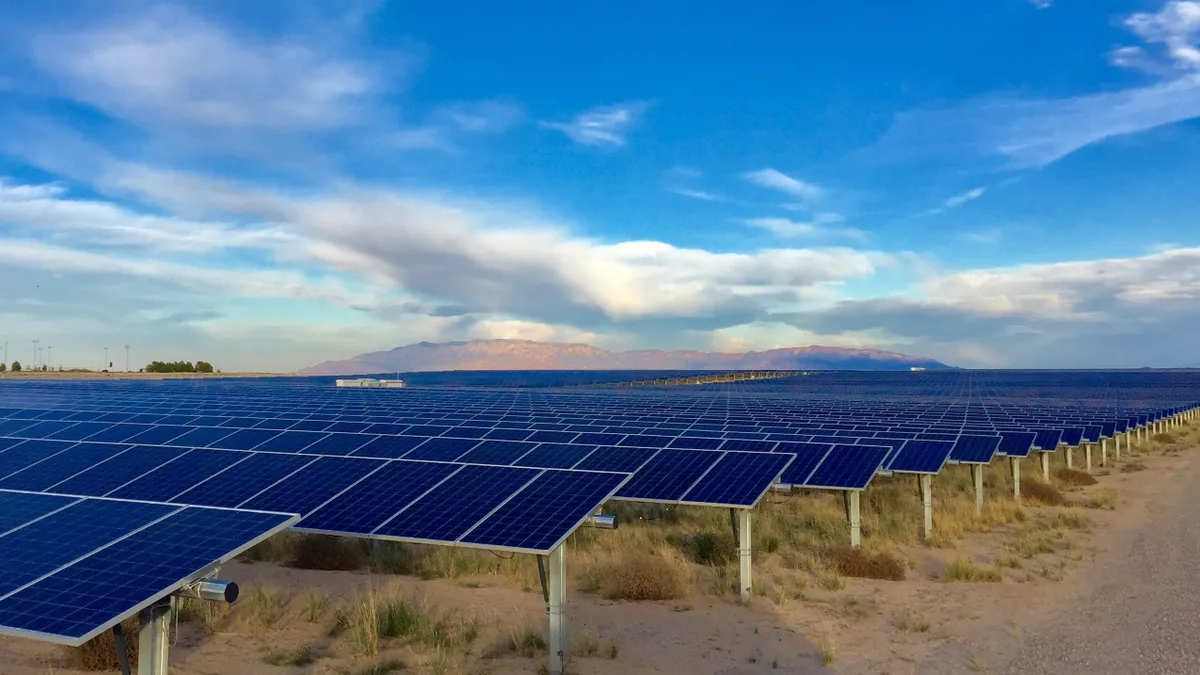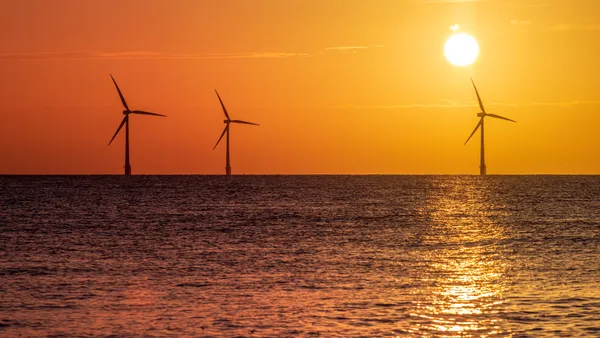Dive Brief:
- The Dallas Morning News reports McCarthy Building Cos. has paused a $100 million, 100 MW solar project near Fort Stockton, Texas, as it waits to see whether President Trump imposes tariffs on imported crystalline silicon photovoltaic modules and cells. It is not the only project now facing uncertainty, with several other McCarthy projects also suspended.
- Last month, the International Trade Commission issued three separate remedies, that ranged from tariffs as high as 35% for CSPV modules to quotas, capped imports or an import licensing fee.
- The Texas project would have employed between 300 and 400 employees, according to McCarthy, and the company said $400 million in other projects have also been put on hold. McCarthy last year installed 600 MW of solar capacity in communities around the United States.
Dive Insight:
A final decision on trade remedies for imported solar equipment is months away, but the uncertainty is taking a toll on planned renewable projects.
Scott Canada, senior vice president of renewables at McCarthy, told the Dallas Morning News that the trade case has created "significant" difficulties. "Every one of our customers said things are pretty much indefinitely on hold until there's clarity," he told the paper.
SolarWorld and Suniva petitioned the ITC in April for import relief under a Section 201 investigation of the 1974 Trade Act. The commission unanimously found cause for severe injury and subsequently issued three remedy recommendations. The commission is expected to send a more detailed report to President Trump, who will then have the final say on which remedy is put in place.
Commissioners David Johanson, a Republican, and Irving Williamson, a Democrat, jointly proposed a quota, with a 30% tariff on imports that would exceed the quota and phase down in 5% increments over a four-year span. Chairman Rhoda Schmidtlein, a Democrat, proposed the most severe measure, with a 35% tariff for modules and a 30% tariff on cells that surpassed a proposed quota set at 0.5 GW (500 MW) for the first year. Commissioner Meredith Broadbent was more lenient, proposing to cap module and cell imports, and impose a licensing fee to be sold at an auction at a penny/watt.
Johanson and Williamson's proposal could carry the most weight, since it has the backing of half the commission. Alternatively, President Trump could develop another set of remedies or decline to impose a remedy at all. However, the last option is unlikely given Trump's protectionist tendencies and his public support of fossil fuels. A final decision is expected before the end of the year.














